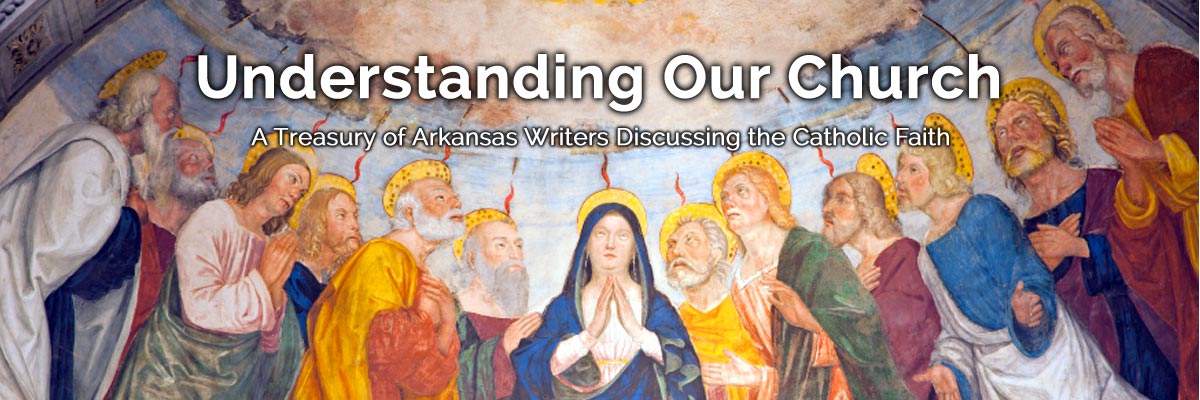Official Website of the
Catholic Diocese of Little Rock
Lessons in John 21: Jesus gives us spiritual guide for following him
Published: May 19, 2018
By Paula Standridge
St. John the Baptist Church, Hot Springs
Jesus appeared to his disciples several times between his resurrection and ascension into heaven. One of those appearances was at the shore of the sea of Tiberius.
In the opening verses of the Gospel of John chapter 21, Peter decided to go fishing and several of the other disciples who were with him accompanied him. The fishing crew was out all night but had caught nothing.
When they returned at dawn, Jesus — whom they did not immediately recognize — says to them, “Children, have you caught anything to eat?” When they answer no, he tells them to try again, this time casting the net over the right side of the boat and they will find something. They obey, and not only catch a great number of fish but catch more than their net should be able to hold.
We too have our own role and ministry. As the body of Christ, we are to work separately together just as the human body does. With different gifts and talents, we will be called in different ways to fulfill God’s will and plan for the kingdom.
Using this passage as a spiritual guide shows us that even though we can do nothing without him, he can work wonders through us when we cooperate with him. Also, in this passage Jesus is addressing the entire group as a whole, both in his greeting and instruction.
A few verses later, Jesus asks Peter three times if he loves him in order to give Peter a chance to repent for the three times denial of him not too many days before. After restoring this relationship, Jesus then tells Peter to take care of his sheep. Jesus tells Peter that he will be led “where you do not want to go” and then says, “Follow me.”
This passage shows us that even though we are sinners, Jesus continually showers his mercy on us, gives us innumerable second chances to show our love for him and never gives up on us. In fact he has a plan in his kingdom for us. In this instance Jesus is addressing Peter only, both in greeting and instruction.
Then Peter, in typical fashion, displays his human nature and says what many of us say or at least think at times. Peter turns and sees the disciple whom Jesus loved, John, and asks Jesus, “What about him?”
Jesus then retorts to Peter (not the first time) saying, “What if I want him to remain until I come: what concern is it of yours? You follow me.”
Basically Jesus says it is none of Peter’s business. Jesus had given Peter a very specific role and a tremendously important one at that. Jesus also had a very special relationship with Peter that was not like his relationship with any of the others.
But perhaps when Peter heard the unpleasant part of his ministry — being led where he did not want to go — he wanted to make sure others would also have to suffer, or maybe he was just being nosy or curious about what ministries Jesus had in mind for the other disciples. Or he may have been envious of “the Beloved Disciple;” it is impossible to say.
We too have our own role and ministry. As the body of Christ, we are to work separately together just as the human body does. With different gifts and talents, we will be called in different ways to fulfill God’s will and plan for the kingdom.
We may sometimes wish we could do another’s job or have another’s talent. Or we may be jealous of a perceived stronger connection to God than our own or feel another is granted more favors, advantages, consolations or even less perceived suffering.
All of this, as Jesus said, is none of our concern. We must fulfill our own role to the best of our ability to build up the kingdom of God.




